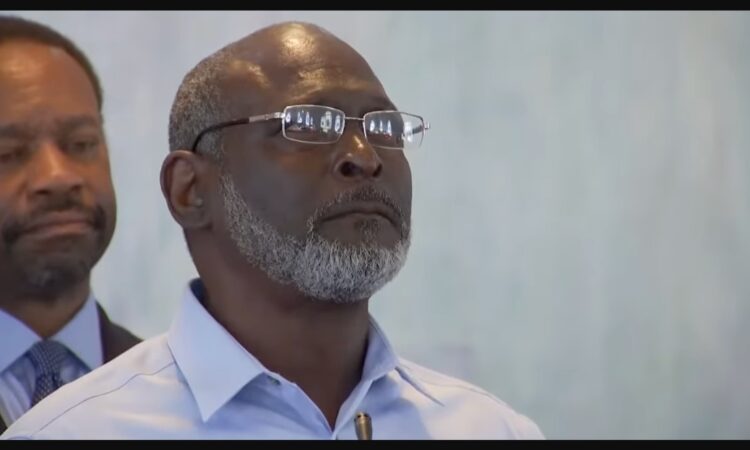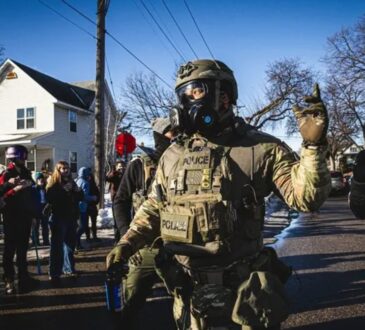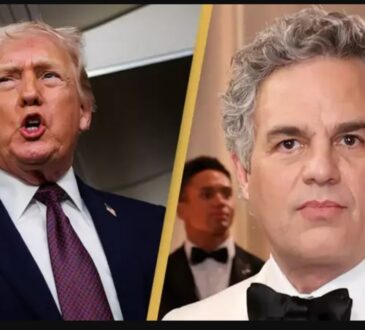Difficult to Conceive’: Florida Black Man Free for 2 Years Ordered to Return to Prison; Needs ‘Hail Mary’ That Includes Gov. DeSantis to Get Back His Freedom

A 65-year-old Florida man will turn himself in mid-April after the U.S. Supreme Court declared it would not hear arguments for his appeal.
Crosley Green, who just five years ago had his murder conviction vacated by a lower court and had been living free for two years, is leaning on his faith as he prepares to return to a life sentence for a crime no physical evidence links him to.
“It’s bad but it ain’t enough to affect me,” Green admitted. “It can’t make me feel down or out
While options are slim, Green and his legal team are turning to two “Hail Mary” strategies to gain his freedom. They are hoping to receive either parole or clemency.
The lawyers said they will reach out to Gov. Ron DeSantis to grant clemency, but he will also need two of three of his cabinet members to agree with him. One of those individuals is the attorney general who is wrangling him back into prison now.
Green has been saying he was innocent since 1989 when he was arrested for the death of Charles “Chip” Flynn Jr.
The sole witness to the shooting connected to Flynn’s death was his ex-girlfriend, Kim Hallock. She explained to the local sheriff’s department that a Black man carjacked them and forced them into the citrus field. Once in the grove, she said Flynn and the strange man got into a shoot-out, and her boyfriend was injured..
Hallock took off in Flynn’s truck to find help, leaving Flynn bleeding amongst the orange trees.
Florida Today reports the girlfriend did not immediately call for help, driving by multiple payphones. She also did not stop at a local hospital or her own house but drove past them to get to one of Flynn’s friends’ homes. Once she arrived at the friend’s house, the individual had to persuade Hallock to call 911 to help save her boyfriend.
Law enforcement arrived at the scene of the crime more than an hour after Flynn was shot. Upon locating the victim, he was rushed to a hospital where he later died.
Deputy Mark Rixey and Sergeant Diane Clark from the Brevard County Sheriff’s Department reported Flynn was able to speak but never mentioned the carjacking. He also did not ask about Hallock, only requesting for the cops to take him home.
The officers denied his request and began transporting him to the hospital. He died on the way there.
Sheriff’s records show that Rixey and Clark noted there was no evidence of a shootout or struggle around the area where they found Flynn. Instead, they observed that the victim’s jacket and clothes were spread out on the ground like a blanket.
Two handwritten notes from the detectives show they believed Hallock may have killed Flynn. One note said the officer “suspect(s) the girl did it” and recorded she “changed her story a couple of times.”
Despite this, investigators later assigned to the case locked in on finding the Black man from Hallock’s account. Green was identified and convicted in 1990 of two counts of kidnapping and one count of murder by an all-white jury. In addition to the suspected bias of the jury, the prosecution withheld Rixey and Clark’s notes and never considered Hallock as a suspect.
Originally, Green was sentenced to the death penalty. However, his sentence was converted to life in prison in 2016 thanks to the efforts of his legal team Crowell & Moring. The attorneys have been representing Green pro bono since 2008.
Things started looking up for Green in 2018 when U.S. District Court Judge Roy B. Dalton Jr overturned his conviction. Dalton granted Green a release or a new trial, finding the prosecution did not present evidence that could have been favorable to Green, thus violating his civil rights.
He wrote, “It is difficult to conceive of information more material to the defense… than the fact that the initial responding officers evaluated the totality of evidence as suggesting that the investigation should be directed toward someone other than [Green],” sources report.
Also, not only were Green’s fingerprints not on Flynn’s stick-shift truck, but he only knew how to drive a manual car. However, Hallock identified Green in a police lineup, and shoe prints and a police canine connected him to the crime, according to reports.
The prosecution also argued Green confessed to committing the crime to others. Hallock identified Green in a police lineup, and shoe prints and a police canine connected him to the crime, reports show. But Green’s attorneys raised questions about the method the canine officer used to track the footprints.
Additionally, four witnesses recanted their statements. They alleged Chris White, the original prosecutor, coerced or threatened them into testifying.
Despite all of this and other problems with Hallock’s testimony, Florida Attorney General Ashley Moody still decided the state would retry Green.
While the state geared up for a new trial, Green sat behind bars until 2021, when Dalton released him on house arrest during the rampant COVID-19 outbreaks in Florida prisons.
Green was finally free after 32 years. While he was out of his cell, he was not out of the woods.
In 2022, Moody took Green’s case to the U.S. Court of Appeals for the 11th Circuit which reversed the lower court’s decision to vacate his conviction. According to that body, the evidence that was not presented was immaterial to the case.
Green’s lawyers attempted to appeal to the U.S. Supreme Court in 2023, but the judicial body refused to hear his case. It gave no weight to four amicus filings in support of the man by prosecutors, a nonpartisan constitutional group, law professors, and other judges and called for Green to turn himself in on April 17.
Though it looks dim, Green’s attorneys are standing by him.




